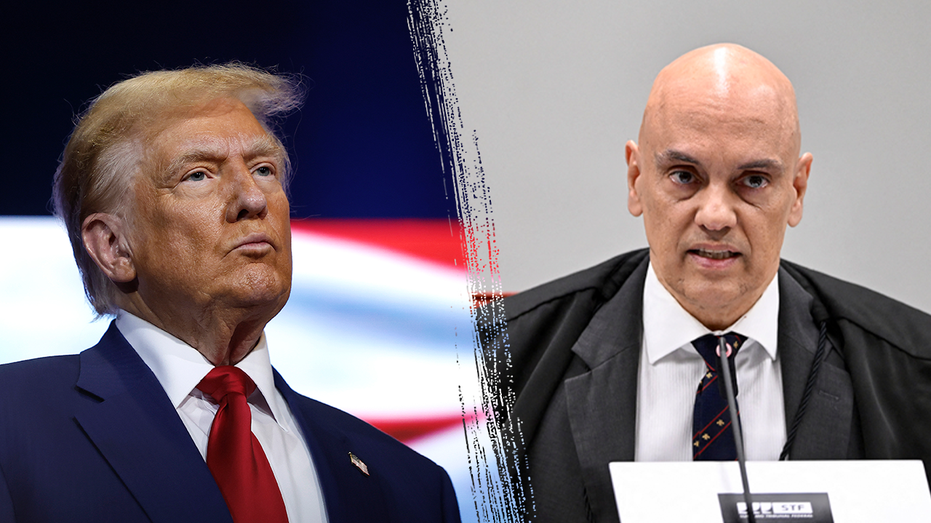Trump DOJ Criticizes Foreign Judge Over Free Speech Case on Rumble in "Unprecedented" Move
Rumble faces international free speech showdown as Brazil's Supreme Court and U.S. Department of Justice become embroiled in a high-stakes legal clash.

The ongoing dispute between the U.S. Department of Justice (DOJ) and Brazil’s Supreme Court has elevated concerns about international influence on American free speech rights, after the DOJ issued a rare and strongly worded letter in May to Brazilian Supreme Court Justice Alexandre de Moraes. The letter, described by analysts as “unprecedented,” admonishes the justice for issuing orders demanding U.S.-based video platform Rumble restrict content from a user residing on American soil—a move U.S. officials call overreach that is not enforceable under American law.
At the heart of the controversy is Rumble, a video-sharing platform based in the United States known for its resistance to content moderation demands from governments around the globe. In February, Justice de Moraes had ordered Rumble suspended in Brazil, claiming the company failed to comply with requests to remove the accounts of a Brazilian national living in the U.S. and seeking political asylum. The user stands accused in Brazil of spreading disinformation and is considered a fugitive by Brazilian authorities. Rumble refused to comply, prompting threats of financial penalties and protracted legal battles.
Citing the First Amendment’s robust protections for free expression, DOJ officials clarified that foreign court orders cannot compel U.S. companies to censor speech on American soil. The DOJ’s May 7 letter, made public Thursday, advised the Brazilian Supreme Court that while Brazil may pursue actions within its own borders under its laws, any attempt to extend enforcement into the United States is without legal standing. “We respectfully advise that such directives are not enforceable judicial orders in the United States,” wrote DOJ official Ada E. Bosque.
This stance was hailed by Rumble CEO Chris Pavlovski, who asserted, “The letter from the U.S. Department of Justice to a foreign judge over censorship orders is unprecedented. It draws a bright red line: foreign officials cannot issue censorship orders that violate the First Amendment or bypass U.S. law.” Pavlovski emphasized that such extraterritorial demands threaten American sovereignty and the global principle of free speech, which he called essential for free societies everywhere.
The DOJ’s intervention comes amid growing calls in the U.S. Congress for a firmer response to international attempts at censorship. In a House Committee hearing in May, Senator Marco Rubio revealed that the State Department is now considering sanctions against Justice Moraes under the Global Magnitsky Human Rights Accountability Act, which permits the U.S. government to penalize foreign individuals implicated in human rights abuses or corruption. Rubio stated that visa restrictions and other measures targeting foreign officials complicit in censoring Americans are “under review right now, and it’s a great, great possibility that will happen.”
The episode underscores the increasingly complex legal landscape confronting tech firms like Rumble. The platform, which is currently inaccessible in countries including China, Russia, France, and Brazil, has reported receiving censorship requests from the U.K., Australia, and New Zealand as well. Despite these pressures, Rumble maintains that its mission is the defense of free speech and opposition to government-mandated censorship worldwide.
In response to the controversy, Brazilian President Luiz Inacio Lula da Silva condemned the U.S. for threatening action against his country’s judiciary, stressing the need for foreign leaders to respect the sovereignty of each nation’s institutions. "It is unacceptable for the president of any country in the world to comment on the decision of the Supreme Court of another country," da Silva remarked, adding that mutual respect between institutions is fundamental to international relations.
The diplomatic friction comes as Justice Moraes also presides over the upcoming high-profile trial of former Brazilian President Jair Bolsonaro, who faces allegations of attempting to overturn the results of the 2022 election. The implications of the dispute reach beyond U.S.-Brazil relations, raising larger questions about how democratic societies balance the competing imperatives of sovereignty, law enforcement, and the universal right to free expression in the digital age.




